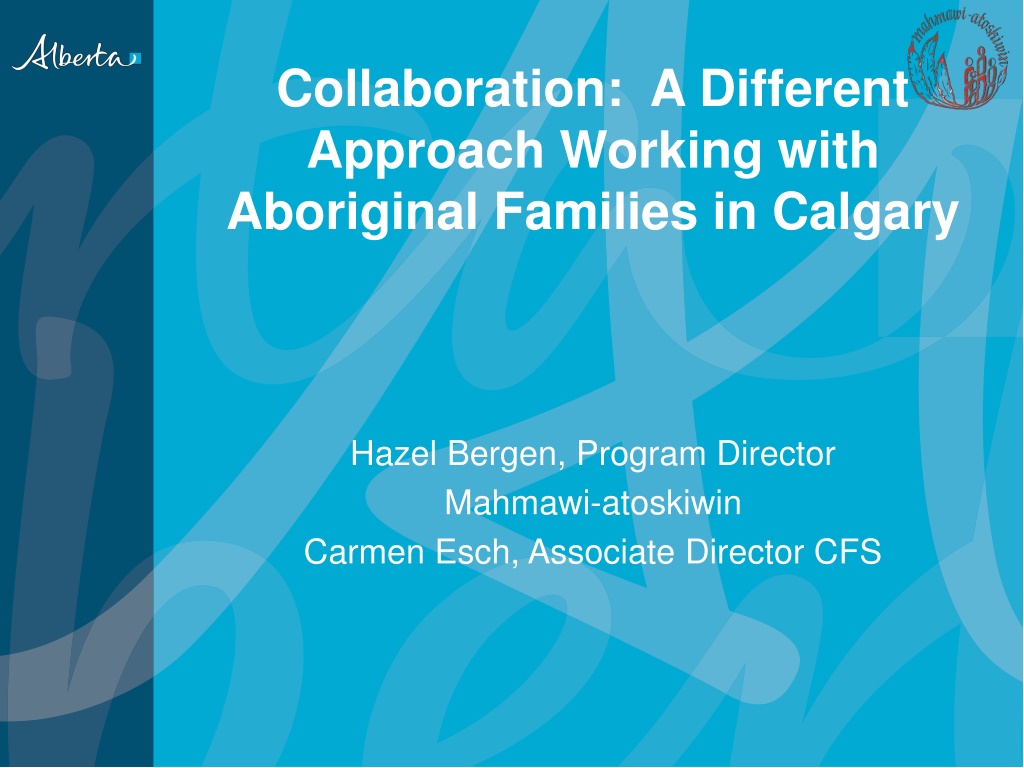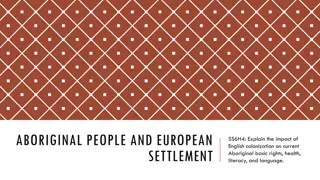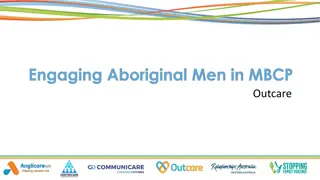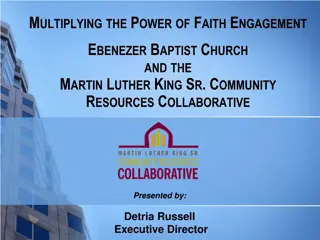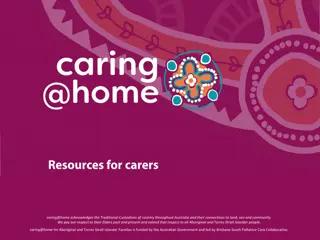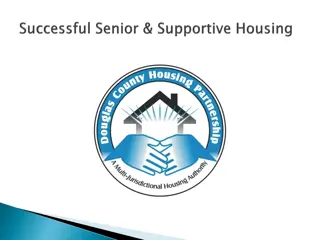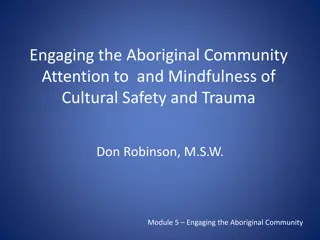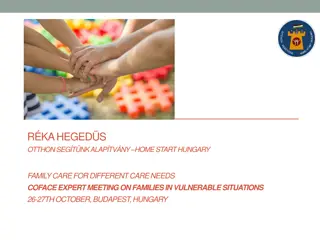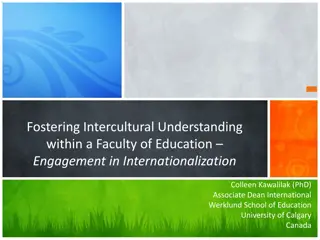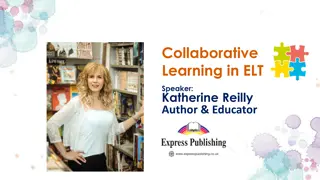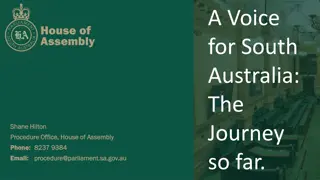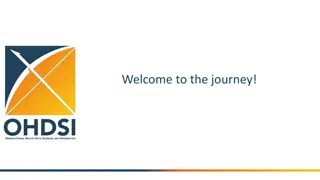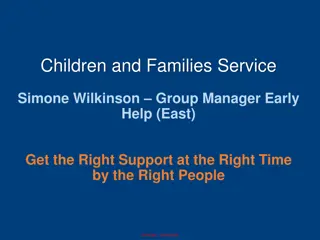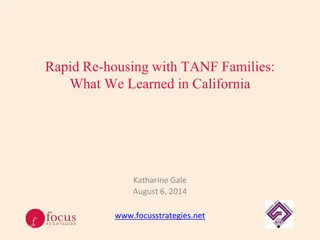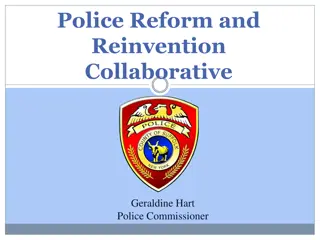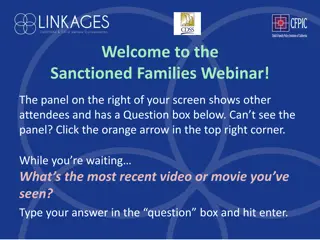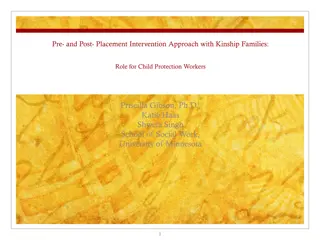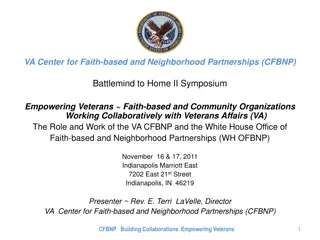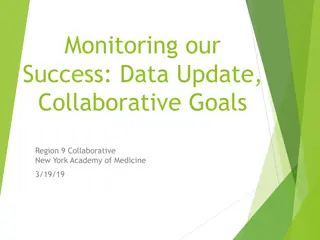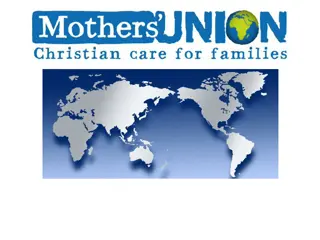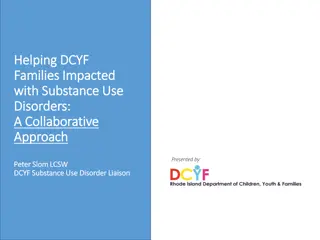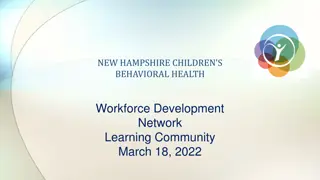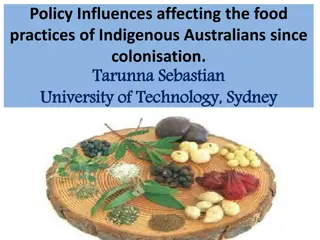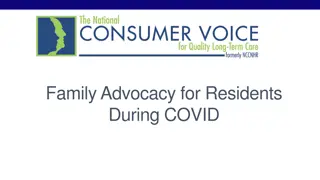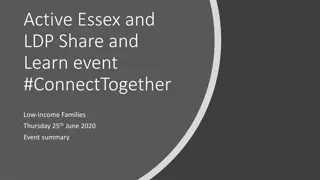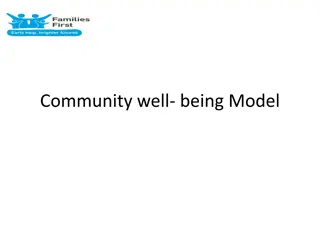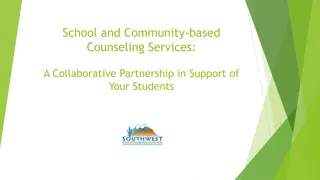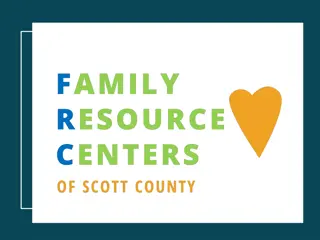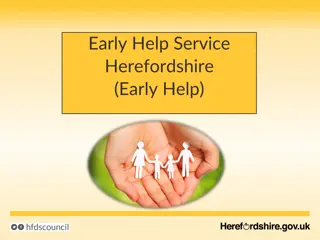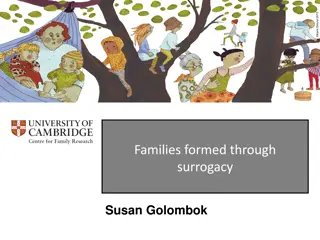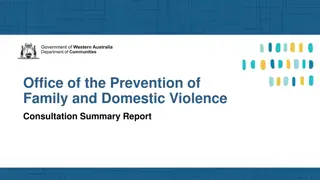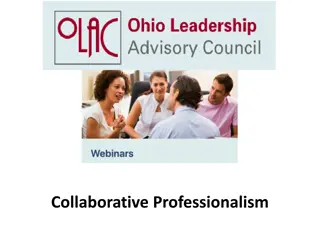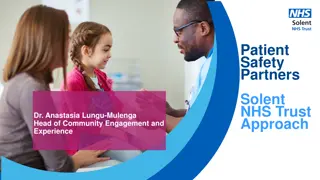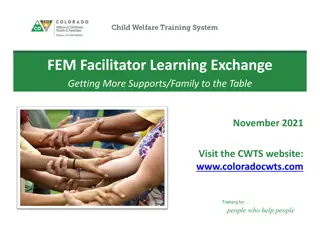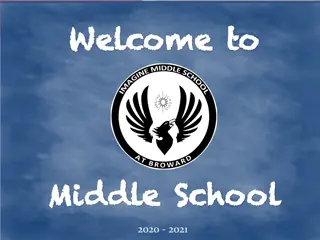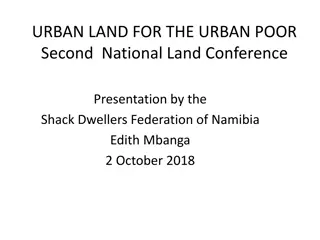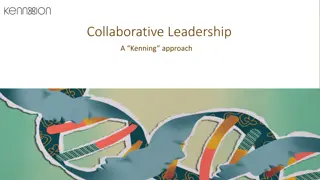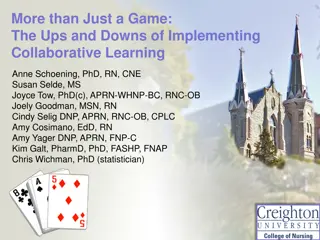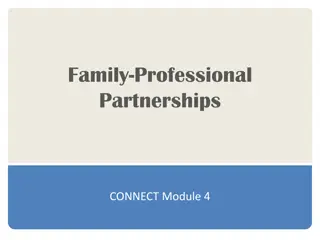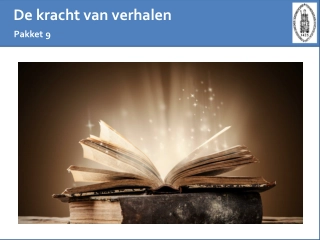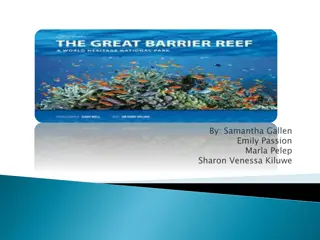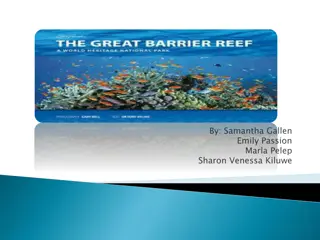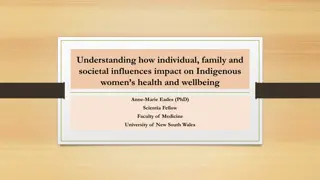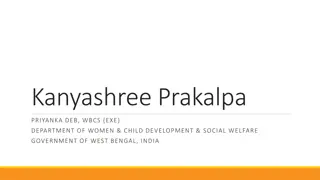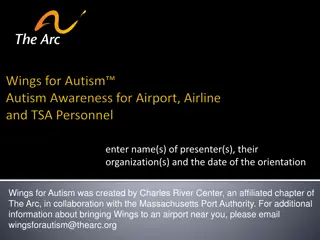Empowering Aboriginal Families Through Collaborative Practices in Calgary
Explore the evolution of collaborative practices with Aboriginal families in Calgary through initiatives like the Mahmawi-atoskiwin alliance. Discover the principles guiding this approach, including cultural sensitivity, self-determination, and holistic strategies, leading to positive outcomes and innovative practices. From engaging with First Nations to implementing new service models, this framework fosters relationships, community involvement, and evidence-based strategies for better family outcomes.
Download Presentation

Please find below an Image/Link to download the presentation.
The content on the website is provided AS IS for your information and personal use only. It may not be sold, licensed, or shared on other websites without obtaining consent from the author. Download presentation by click this link. If you encounter any issues during the download, it is possible that the publisher has removed the file from their server.
E N D
Presentation Transcript
Collaboration: A Different Approach Working with Aboriginal Families in Calgary Hazel Bergen, Program Director Mahmawi-atoskiwin Carmen Esch, Associate Director CFS
Engaging Aboriginal Families Through Collaboration OVERVIEW CFS: Context/History Aboriginal Framework Evolution of Practice Mahmawi-atoskiwin: Alliance Practice Collaboration Outcome Data: What s working well Moving Forward 2
Engaging Aboriginal Families Through Collaboration In 2009, the leadership team began to development of the Aboriginal Framework PRINCIPLES: Culture and Language Self Determination Holistic Approach Ongoing Learning/Best Practice 3
CFS: Evolution of Practice Through the Lens of Engagement and Collaboration ENGAGING WITH FAMILIES, COMMUNITIES AND PARTNERS Provincial and regional legislative, policy and practice shifts Office Reorganization Community based teams Elder program Kinship Search Relationship Building Meaningful Band Consultations Permanency Planning Implementation of evidenced based/innovative practice 4
Engaging Aboriginal Families Through Collaboration Engaging with First Nations: Meaningful Band Consultations Returning children for community events/visits Elder Program Kinship Search Cultural Camp 5
Engaging Aboriginal Families Through Collaboration Incorporating New Practice Models: Implementation of Practice Strategies Signs of Safety Other evidenced based practices 6
Engaging Aboriginal Families Through Collaboration Aboriginal Services OBSD Tender Mahmawi-atoskiwin Relationship building Collaborative practice 7
Mahmawi-Atoskiwin Mahmawi-Atoskiwin is an alliance of three agencies, Boys and Girls Clubs of Calgary; Enviros; and Pathways Community Services Association Each agency has taken a lead role in some aspect of Mahmawi-atoskiwin Our model is based on the practices developed by Kahkiyaw in Edmonton 8
Mahmawi-Atoskiwin began delivering service in July 2013 and has been working in collaboration with CFS since that time The model is based on creating a Family Wellness Team that includes: The Family Extended Family and Friends CFS Caseworker Family Wellness Partner (Mahmawi-atoskiwin key worker) Circle Keeper (Mahmawi-Atoskiwin staff to assist with cultural connections and supporting the circle) 9
Roles: Family Wellness Partner Family Wellness Partner provides support to the family to implement the actions identified through the Signs of Safety Mapping Lodge Keeper The Lodge Keeper is there to assist with providing some of the instrumental supports to families. Part of the role may include assisting with supported visits if the child has come into care. 10
Roles Circle Keeper The Circle Keeper is someone who is culturally connected and is able to facilitate, lead and create peace Elders Work with families in their homes Conducts ceremonies Support staff members 11
From July 2013 to the end of September 2014 Mahmawi-Atoskiwin staff were involved with 480 children Mahmawi-Atoskiwin becomes involved with families begins during the assessment phase Collaborating with the assessors and the family has provided an ability to address concerns in a quick and immediate way Most of these children have remained in their homes, with their moms and dads or extended family members 12
Collaborative Case Management Families continue to receive support from a Family Wellness Partner and a case-worker When a Family Enhancement Agreement is signed, the Family Wellness Partner works to support the family to achieve their goals These supports are flexible and work with the family on what is important to them (established through signs of safety mapping) 13
Collaborative Case Management If there are significant safety concerns children may be placed in care Mahmawi-Atoskiwin will work with the family to address the issue that prevent the child/ren from being in the home Having an ability to support families along the way has been important in this process When children are returned to their parents Mahmawi-Atoskiwin can continue to support the family creating a seamless access to support 14
Engaging Aboriginal Families Through Collaboration Flexible funding has allowed our programming and staff to be responsive to families in ways that remove barriers to keep children safe These funds (although limited) can be implemented at any point that Mahmawi-Atoskiwin is involved Funds have been used in creative ways to support families over short periods of crisis to keep their children with them and plan for 15
Being involved right at the beginning of the CFS process allows us to have a clear understanding of the worries for the children s safety and increases our ability to support the family to make changes the work can start right away 16
Culture as part of Collaboration Cultural practices are an important aspect of the work and can be considered as the model of treatment for families Signs of Safety allows families to identify how they can best resolve the issue of concern This has meant for some families attending traditional ceremonies instead of western programming 17
Cultural practices for families include: The Lodge Ceremony this has become a monthly practice available to families Culture camp: Mahmawi-atoskiwin provided four cultural camps for families to attend this summer where the Circle Keeper and Elder facilitated ceremonies and meaningful conversations throughout the weekend This camp grew in numbers through the summer with feedback stating the families found this time meaningful and part of their healing journey 18
Talking Circle Talking circles for both men and women are starting in the month of November Smudging Access to Elders 19
Collaborative Practice In our limited experience in working collaboratively with CFS we are finding that we can assist families to make the necessary changes to keep their family safe Families are able to involve people who care about them and their children as supports and develop safety plans that work When children come into care there are often serious issues in the family and future planning for the children is able to happen more quickly 20
Collaborative Practice Setting up time for meeting with each other has been critical to successful collaborative practice Working as a team takes more time in the beginning Communication along the way is also key to ensure each person knows what the other is doing Families are able to work on a variety of goals quickly as there is support through family, friends and professionals, all who know what the worries and what it will mean to be successful 21
OUTCOME DATA WHAT S WORKING WELL 22
Questions? HAVE A GREAT DAY! 27
